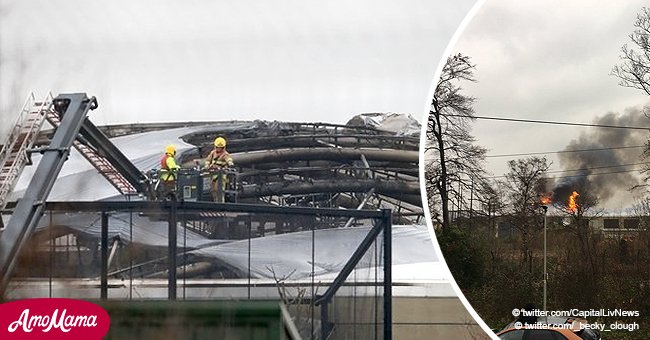
Chester Zoo announces animal losses after devastating blaze
A major fire broke out at Chester Zoo, but, unfortunately, the staff was unable to save all animals, which ended up perishing in the flames.
On Saturday, December 15, 2018, in Cheshire, England, visitors were shocked to see huge dark clouds coming from the Monsoon Forest habitat.
Chester Zoo announced that they were unable to save some of their insects, frogs, fish and small birds, leaving them completely 'heartbroken.'
Follow us on our Twitter account @amomama_usa to learn more.
According to Chief Operating Officer Jamie Christon, losing those animals was soul-crushing because conservationists worked very hard to breed them.
Against all odds, the zoo opened this Sunday, but the devastating blaze will forever be in the memories of those who witnessed it in person and lived through the horror.
A FUN DAY THAT ENDED IN TRAGEDY
At the time, employees tried to help the visitors by redirecting them to the other side of the zoo, where they could leave without suffering any harm.
All those who bought tickets were reimbursed but people were more worried about the animals that called the zoo their home and had nowhere to run.
ALL ENDANGERED SPECIES WERE SAVED
The zoo houses over 21,000 animals, including very endangered species, which were a main priority to the animal teams.
According to the zoo's official statement, they were able to save an endangered group of Sumatran orangutans, Sulawesi macaques, endangered silvery gibbons and birds such as rhinoceros hornbills.
THE SURVIVING ANIMALS WILL HAVE NEW HOMES
New homes have been found within the zoo for the animals moved out of their habitats to escape the flames and the animal teams are 'working around the clock to relocate them as soon as possible.'
Chester is considered to be the biggest indoor zoo in the UK and one of the region's biggest attractions, drawing millions of visitors every year from around the globe.
The devastating blaze was the biggest tragedy in the history of the zoo, ever since it was open to the public back in 1930.
